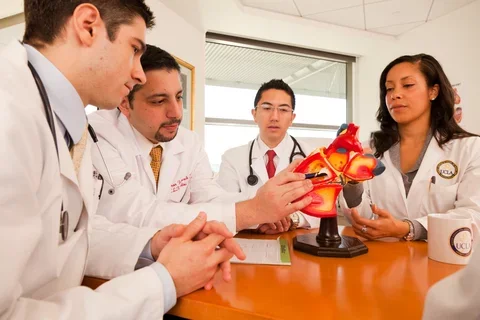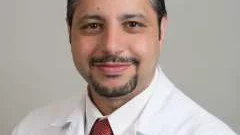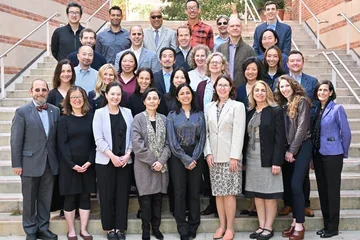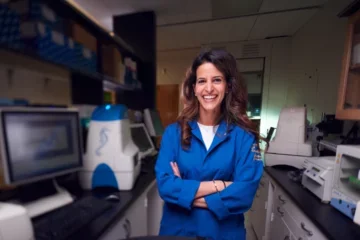What Is Thoracic Surgery?
A UCLA Doctor Explains

A Day in the Life of Dr. Peyman Benharash, Cardiothoracic Surgeon
Thoracic surgery focuses on the chest organs, including the heart, lungs, esophagus, and trachea. Technological advances have increased the safety and availability of these complex surgical procedures. Lung cancer surgeries, heart transplants, and anti-reflux surgeries save and improve lives around the world.
What Is a Thoracic Surgeon
Full of opportunities to save lives and adopt new and advanced technologies, a career in thoracic surgery comes along with intense demands.

Peyman Benharash, MD, a cardiothoracic surgeon at UCLA, begins his day around 5 am. He arrives at the hospital before 6 am to make the rounds with patients, examining them, talking to the intensive care team and taking notes. He performs bypasses, aortic valve repairs and mitral valve repairs, among other procedures. Surgery can last six to eight hours.
After surgery, Dr. Benharash sees both pre-operative and post-operative patients. When he's not in surgery, Dr. Benharash may be found in the lab working on the latest research to advance cardiothoracic surgery.
"The day is busy but interesting," Dr. Benharash says. "As a cardiothoracic surgeon, you meet with people long before surgery and develop a bond with the patients that is always there, during and after the operation."
How to Become a Thoracic Surgeon
Cardiothoracic surgeons receive training and board certification in thoracic surgery. Surgeons may choose to focus on cardiac surgery, general thoracic surgery, transplant surgery, or even a combination of different procedures.
Dr. Benharash took a traditional path; he completed a general surgery residency (which usually lasts five years) and then moved on to a thoracic surgey fellowship (which usually lasts two to three years).
Dr. Benharash wanted to pursue research, but during residency, cardiothoracic surgery drew him in.
"Being a cardiothoracic surgeon feels like being in a lab every day in a way," he says. "You make new discoveries and have a new challenge every day. It's not the same diagnosis every time."
Today, budding surgeons who know they want to specialize in thoracic surgery may pursue integrated residency programs that last about six to seven years and combine general surgery and thoracic surgery.
Thoracic Surgery: a Challenging and Rewarding Specialty
Dr. Benharash finds thoracic surgery especially rewarding because it involves both saving and improving lives. Thoracic surgery is advancing steadily, benefitting from innovations in minimally invasive and robot-assisted procedures that promise to improve patients' lives even more.
"You are able to bring quality of life to people through these procedures that seem crazy and unnatural," he says. "When the patient wakes up afterward and is happy and doing well, it makes it all worthwhile."



